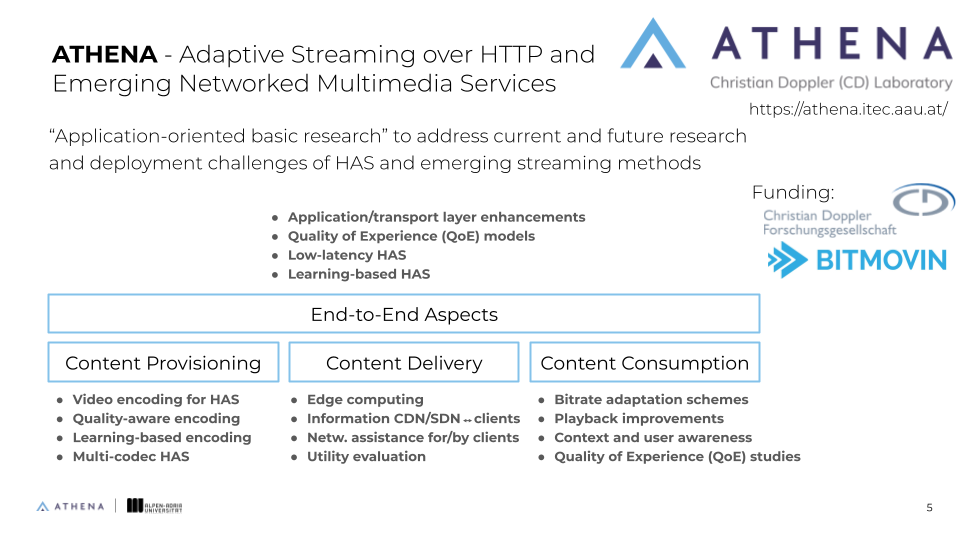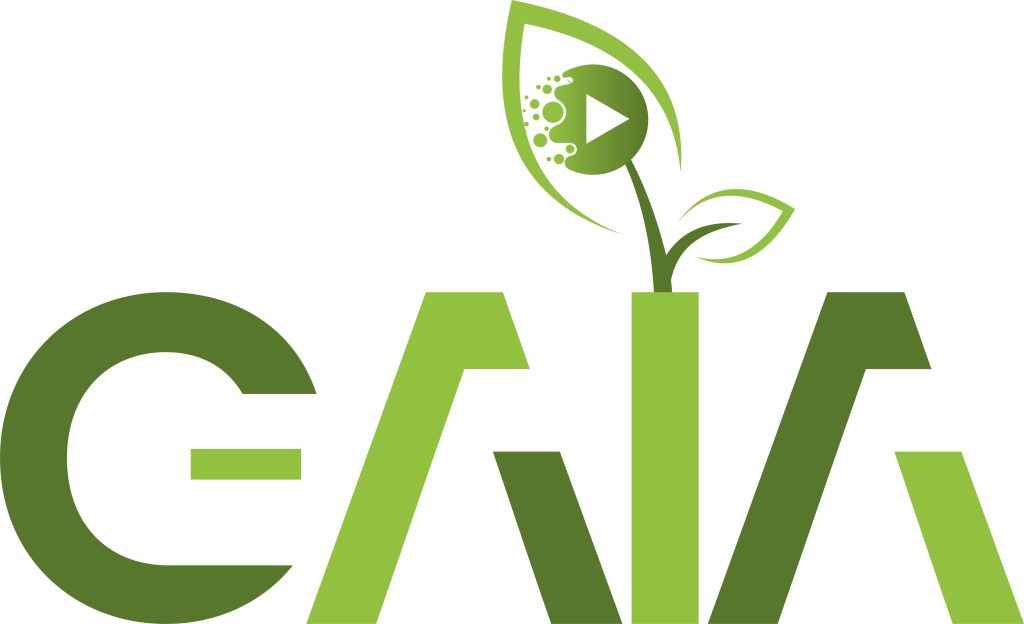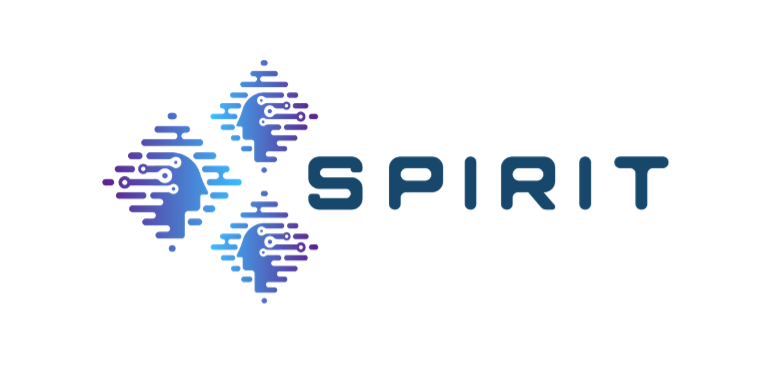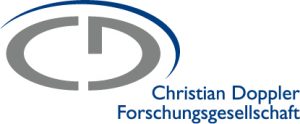The Christian Doppler laboratory ATHENA (AdapTive Streaming over HTTP and Emerging Networked MultimediA Services) has been jointly proposed by the Institute of Information Technology (ITEC; https://itec.aau.at/) at Alpen-Adria-Universität Klagenfurt (AAU; https://www.aau.at) and Bitmovin GmbH (https://bitmovin.com) to address current and future research and deployment challenges of HTTP Adaptive Streaming (HAS) and emerging streaming methods. The aim of ATHENA is to research and develop novel paradigms, approaches, (prototype) tools, and evaluation results for the phases (1) multimedia content provisioning (WP-1), (2) content delivery (WP-2), and (3) content consumption (WP-3) in the media delivery chain as well as for (4) end-to-end aspects (WP-4), with a focus on, but not being limited to, HTTP Adaptive Streaming (HAS).

In this blog post, I’d like to briefly review how it started until the official review of the first phase in April 2021 that took place online. The result of this review is provided at the end.
ATHENA started in October 2019 with an international team of professors, Post-docs, Ph.D. students, and administrative personnel after an intensive hiring period from approx. February to December 2019. Additionally, we had to establish an entirely new office space from scratch (incl. planning thereof) as part of the Educational Lab of the Lakeside Science and Technology Park (due to space limitations of ITEC/AAU). Finally, the official opening event was celebrated as part of the 50-year celebration of AAU on January 21, 2020. Shortly after starting ATHENA, the COVID-19 pandemic reached also Austria and, thus, ATHENA, which significantly impacted our daily lives and work routines. The ATHENA team was required to switch to work-from-home (WFH) within one day including the management thereof, without prior experience in managing remote teams/individuals. However, ATHENA swiftly managed this transition thanks to ITEC administrative staff and Bitmovin who provided administrative support.
Despite all the issues caused by COVID-19, ATHENA was able to manage this extreme situation in a professional way leading to a number of publications in renowned publication venues. ATHENA was accepted as a pilot laboratory with the requirement to conduct application-oriented basic research according to the funding model of the Christian Doppler Gesellschaft (CDG). In this context, the ATHENA research resulted in various advances in adaptive streaming over HTTP and emerging networked multimedia services as outlined in the scientific part of this report. In particular, three journal publications with high impact/quality factor I and 17 conference/workshop publications with high quality factor I-II according to AAU’s internal ranking guidelines based on internationally recognized rankings (e.g., CORE). Furthermore, ATHENA contributed to a white paper on Definitions of Immersive Media Experience. Finally, various publications are currently in progress, i.e., under review/revision or to be submitted soon. The latest information about all ATHENA publications can be found here (25 at the time of writing this blog post).
Christian Doppler laboratories are scientifically peer-reviewed regularly in between different phases of the project. The first review is typically done before the completion of the second year, and, thus, ATHENA has been reviewed in April 2021 (i.e., a bit earlier due to its ‘pilot’ status) based on the review report submitted in March 2021. This report included an overview of scientific contributions made during the first phase as well as a detailed research plan for the second phase of ATHENA. The actual review meeting was organized as an online meeting (due to COVID-19) comprising several administrative/overview presentations but also four technical presentations:
- Video Coding for HTTP Adaptive Streaming: State of the Art, Recent Advances, and Future Perspectives
- Network Assistance for HTTP Adaptive Streaming
- H2BR: HTTP/2-based Segment Upgrading to Improve the Quality of Experience in HTTP Adaptive Streaming
- QoE-Fairness in Low Latency Live Streaming
The Christian Doppler Research Association discussed the outcome of this ATHENA review in their meeting in June 2021. It is my pleasure to announce that the ATHENA CD ‘pilot’ lab is transferred into a regular CD lab starting October 2021 (i.e., received a successful, positive evaluation report) and that the budget for the second phase has been approved (i.e., Oct’21-Sep’24). I’d like to thank the CDG and the external reviewer for their valuable support and constructive feedback during this phase of ATHENA and I’m looking forward to an exciting and innovative second phase of the project. Finally, I’d like to thank the Alpen-Adria-Universität Klagenfurt, our industrial partner Bitmovin, and our ATHENA team for their tremendous efforts and contributions towards this first successful milestone. Stay tuned…













